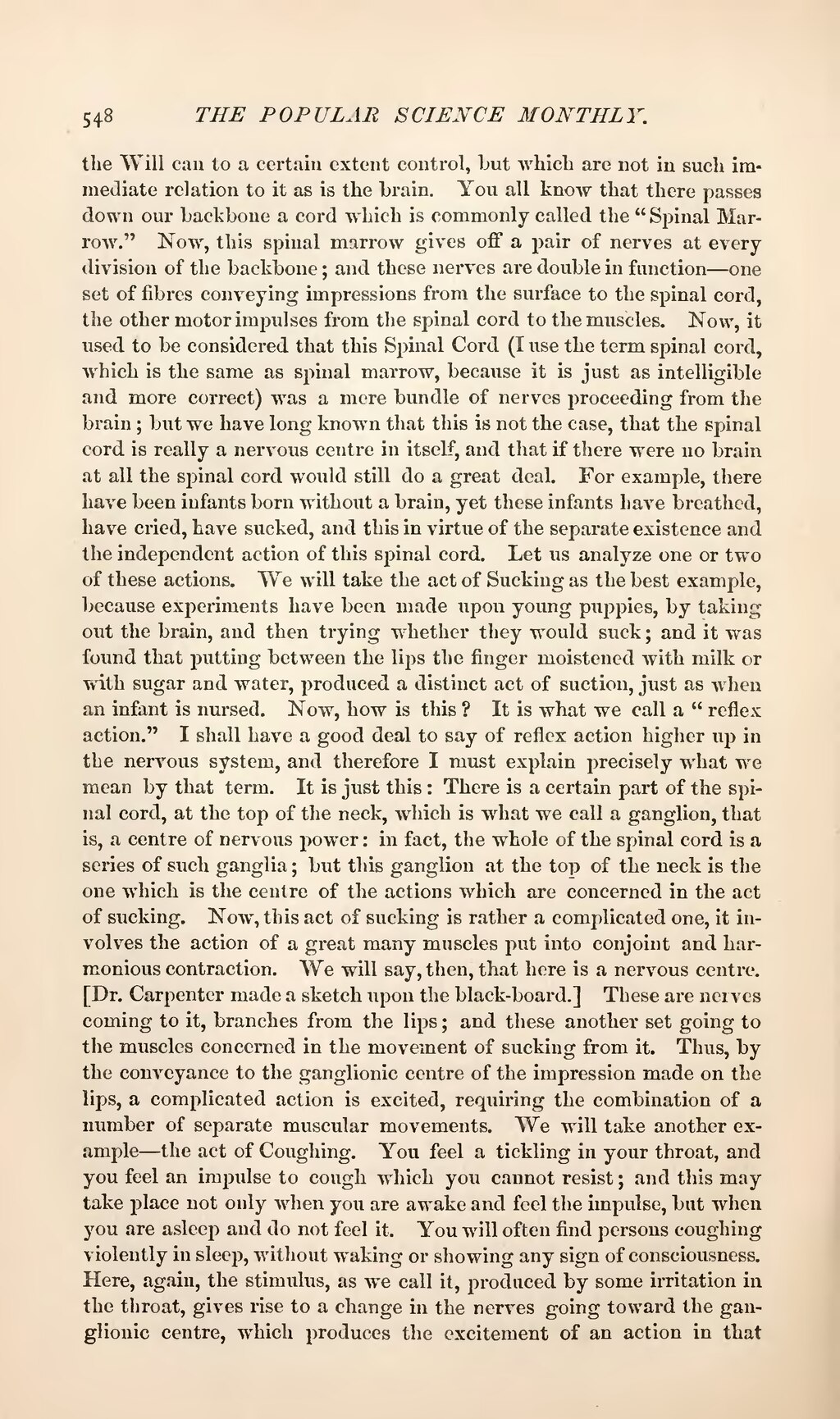the Will can to a certain extent control, but which are not in such immediate relation to it as is the brain. You all know that there passes down our backbone a cord which is commonly called the "Spinal Marrow." Now, this spinal marrow gives off a pair of nerves at every division of the backbone; and these nerves are double in function—one set of fibres conveying impressions from the surface to the spinal cord, the other motor impulses from the spinal cord to the muscles. Now, it used to be considered that this Spinal Cord (I use the term spinal cord, which is the same as spinal marrow, because it is just as intelligible and more correct) was a mere bundle of nerves proceeding from the brain; but we have long known that this is not the case, that the spinal cord is really a nervous centre in itself, and that if there were no brain at all the spinal cord would still do a great deal. For example, there have been infants born without a brain, yet these infants have breathed, have cried, have sucked, and this in virtue of the separate existence and the independent action of this spinal cord. Let us analyze one or two of these actions. We will take the act of Sucking as the best example, because experiments have been made upon young puppies, by taking out the brain, and then trying whether they would suck; and it was found that putting between the lips the finger moistened with milk or with sugar and water, produced a distinct act of suction, just as when an infant is nursed. Now, how is this? It is what we call a "reflex action." I shall have a good deal to say of reflex action higher up in the nervous system, and therefore I must explain precisely what we mean by that term. It is just this: There is a certain part of the spinal cord, at the top of the neck, which is what we call a ganglion, that is, a centre of nervous power: in fact, the whole of the spinal cord is a series of such ganglia; but this ganglion at the top of the neck is the one which is the centre of the actions which are concerned in the act of sucking. Now, this act of sucking is rather a complicated one, it involves the action of a great many muscles put into conjoint and harmonious contraction. We will say, then, that here is a nervous centre. [Dr. Carpenter made a sketch upon the black-board.] These are nerves coming to it, branches from the lips; and these another set going to the muscles concerned in the movement of sucking from it. Thus, by the conveyance to the ganglionic centre of the impression made on the lips, a complicated action is excited, requiring the combination of a number of separate muscular movements. We will take another example—the act of Coughing. You feel a tickling in your throat, and you feel an impulse to cough which you cannot resist; and this may take place not only when you are awake and feel the impulse, but when you are asleep and do not feel it. You will often find persons coughing violently in sleep, without waking or showing any sign of consciousness. Here, again, the stimulus, as we call it, produced by some irritation in the throat, gives rise to a change in the nerves going toward the ganglionic centre, which produces the excitement of an action in that
Page:Popular Science Monthly Volume 1.djvu/564
Appearance

